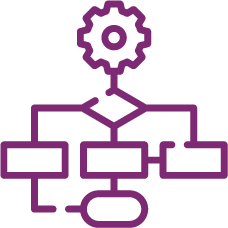Technology-Based EconomicDevelopment Practice
Lewis-Burke’s Technology-Based Economic Development (TBED) Practice assists clients seeking to shape and pursue federal opportunities that advance the commercialization of research, forge public-private partnerships, and drive regional development strategies. Lewis-Burke’s holistic insights across the spectrum, from lab-to-market initiatives to expansive regional growth efforts around key technology areas, position clients to effectively navigate the deepening federal emphasis on innovation-driven economic development.
Experts In Advocacy
Clients routinely tap into the Practice’s decades of experience in the federal lab-to-market and economic development spaces. Experts at the firm leverage unparalleled knowledge and relationships among decision makers at key agencies and in Congress to skillfully develop and execute on meaningful, diversified client engagement strategies.
By leveraging relationships across the federal government, the Practice suggests and implements strategies designed to elevate client profiles and enhance agency and congressional engagement, enabling clients to shape and pursue strategic opportunities.
The Practice meets clients where they are in support of commercialization or innovation ecosystem-building activities by developing tailored analyses of agency perspectives and providing actionable intelligence on future federal direction. As a result, clients have successfully competed for numerous large, multifaceted awards across federal agencies.
The Practice facilitates targeted external engagement with federal officials and other key decision makers to advance client policy and profile-raising goals in the TBED space.
The Practice assists clients by advancing targeted advocacy campaigns for the development of sensible TBED-oriented policies, programs, and legislation.
Early information on new programs, potential funding solicitations, and emerging trends allows clients to identify partners, form teams, and position themselves ahead of the competition, often well before opportunities are released.
Information on funding programs and resources across federal agencies enables university researchers and administrators to diversify funding streams and focus priorities in new or established areas
of research.
Enhanced understanding of how different agencies operate helps universities in competing more effectively for funding opportunities and enables increased opportunities for engagement to drive new activities and initiatives across agencies.
Crafting advocacy strategies that leverage congressional delegation support along with deep connections with congressional committees and leadership to achieve key priorities. This includes individual priorities and coalition building to connect like-minded partners and pursue more complex policy priorities that will enable new opportunities.
By leveraging relationships across the federal government, the Practice suggests and implements strategies designed to elevate client profiles and enhance agency and congressional engagement, enabling clients to shape and pursue strategic opportunities.







